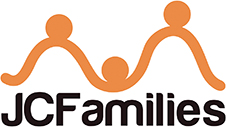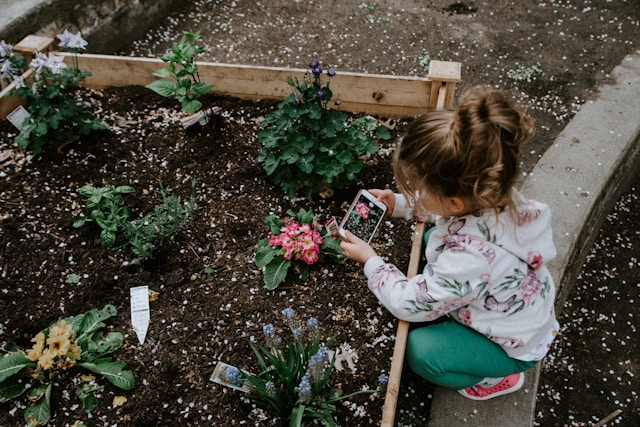Caring For Children During Coronavirus
Coronavirus has been a serious concern for all of us right now but for kids to take in the news and fear around the pandemic may be quite hard and daunting. It is essential for parents to have an open conversation with kids on what has been happening around us which is why this blog is perfect for all of you parents who want more information on how to keep your children healthy mentally, physically, and emotionally during this time and have an open conversation about it. These are so important tips shared by the Centers for Disease Control and Prevention(CDC).
Tips From The Centers for Disease Control and Prevention(CDC):
Remain Calm: Remember that children will react to both what you say and how you say it. They will pick up cues from the conversations you have with them and with others so try to remain calm. Try to focus on the positive and help your kids do the same.
Reassure Children: Reassure kids that they are safe. Let them know it is okay if they feel upset during this time. Share with them how you deal with your own stress so that they can learn how to cope with you. Remind them that your family is healthy and safe.
Make yourself available to listen and to talk: Let children know they can come to you when they have questions or concerns about coronavirus. They may be confused about the whole situation which is why it is very important to take time and hear them out.
Avoid language that might blame others and lead to stigma.
Pay attention: It is essential to what children see or hear on television, radio, or online. Consider reducing the amount of screen time focused on COVID-19. Too much information on one topic can lead to anxiety and increase fear.
Provide information that is truthful and appropriate: Parents must share information that is truthful and appropriate for the age and developmental level of the child. Talk to children about how some stories on COVID-19 on the Internet and social media may be based on rumors and inaccurate information. Children may misinterpret what they hear and can be frightened about something they do not understand so it is very important to see where they are seeing this information and monitoring it.
Teach children everyday actions: Working on teaching children about everyday actions that reduce the spread of germs is a good idea. Remind children to wash their hands frequently and stay away from people who are coughing or sneezing or sick. Also, remind them to cough or sneeze into a tissue or their elbow, then throw the tissue into the trash. Sit down and explain to your children why and how handwashing is essential and can keep them healthy. It is important to be a good role model—if you wash your hands often, they’re more likely to do the same. Also, when wearing masks, it’s important to talk about why masks are essential to wear right now so that the virus doesn’t spread, even if they are uncomfortable to wear them out.
Maintain a daily routine: With the situation right now, routines can get confusing but keeping a regular schedule and routine will provide a sense of control, predictability, calm, and well-being. It can also help everyone enjoy their “me time” when needed in the household.
Help your child stay active: It can be super helpful when you encourage you, child, to play outside. It’s great for physical and mental health. Take a walk with your child, go to a local park or hiking. You can even go on a bike ride with a mask on. Using indoor activity breaks (like stretch breaks or dance breaks) throughout the day to help your child stay healthy and focused.
Help your child stay socially connected: Another important tip during this time is to remember to keep your children physically distanced but not socially distant. Reach out to friends and family via phone or video chats. Catch up and have weekly online meetings via Zoom or other video channels. Help your children write cards or letters to family members they may not be able to visit. Some schools and non-profits, such as the Collaborative for Academic, Social, and Emotional Learningexternal icon and The Yale Center for Emotional Intelligenceexternal icon, have resources for social and emotional learning. Check to see if your school has tips and guidelines to help support the social and emotional needs of your child.
Keep your child busy with different activities: Now more than ever it’s essential to find ways to keep your children busy whether that is by staying connected with their school or finding educational resources online. There are many virtual classes that your child can get involved with. Find some fun things to do indoors that will keep them busy.
Watch for signs of stress or behavior changes. Not all children and teens respond to stress in the same way. Some common changes to watch for include:
- Excessive worry or sadness
- Unhealthy eating habits
- Unhealthy sleeping habits
- Difficulty with attention and concentration
Keeping Explanations Age-Appropriate
According to The National Association of School Psychologists(NASP), parents need to make sure when they are having discussions on coronavirus that they keep them age-appropriate. Here is a guide they have provided.
- Early elementary school children. Provide brief, simple information that balances COVID-19 facts with appropriate reassurances that adults are there to help keep them healthy and to take care of them if they do get sick. Give simple examples of the steps people make every day to stop germs and stay healthy, such as washing hands. Use language such as “adults are working hard to keep you safe.”
- Upper elementary and early middle school children. This age group often is more vocal in asking questions about whether they indeed are safe and what will happen if COVID-19 spreads in their area. They may need assistance separating reality from rumor and fantasy. Discuss the efforts national, state, and community leaders are doing to prevent germs from spreading.
- Upper middle and high school students. Issues can be discussed in more depth. Refer them to appropriate sources of COVID-19 facts. Provide honest, accurate, and factual information about the current status of COVID-19. Engage them in decision-making about family plans, scheduling, and helping with chores at home.
- For all children, encourage them to verbalize their thoughts and feelings. Be a good listener!
If you are looking for more information on this topic please check out this CDC page.[/vc_column_text][/vc_column][/vc_row]






